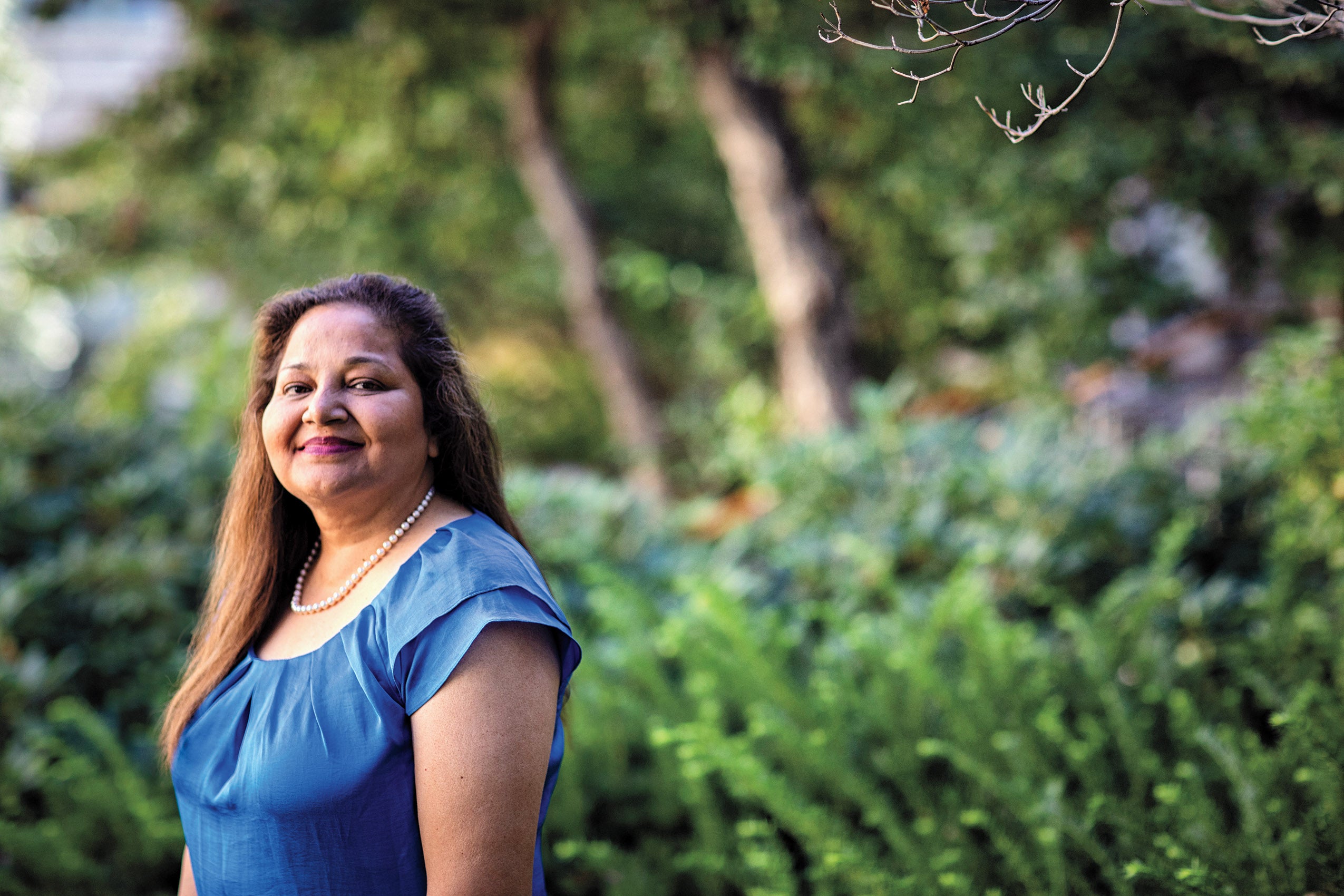After serving as New York’s solicitor general and working in private law practice, Preeta D. Bansal ’89 played a major role in the Obama administration’s first term as general counsel for the Office of Management and Budget. In 2015, she co-founded the Social Emergence Corporation to explore ways to encourage communication and community. She is a senior adviser to the MIT Media Lab’s Social Machines Laboratory.
On coming to Harvard as an undergrad from Lincoln, Nebraska:
I feel that traditional ways of social change are rearranging the deck chairs on the Titanic.
On HLS in the ’80s:
Harvard Law had obviously been at the top as a professional school, and there were many people drawn to it for that reason. It was also the height of the Critical Legal Studies movement, and many people were drawn to it for its critique of mainstream power and mainstream institutions. The law faculty was also split. Soon after, it was called “the Beirut of legal education.”
I actually liked that a lot. I thought that made it really diverse and interesting. But it also led to conflicting experiences, because people had different expectations for what they would get. It wasn’t a happy, fuzzy place to go to law school. I think that changed, and I’m delighted it did. I remember coming back to campus in the last five or 10 years and thinking, Oh, my gosh, people actually seem happy here.
Her experiences as a woman at HLS:
I was the only woman on the masthead at the [Harvard] Law Review, or one of the few. It was my first recognition of gender issues. I started realizing, increasingly, whether women opted out happily, or for whatever reason, the numbers of women started getting increasingly thin.
On sexism in government:
A famous McKinsey study said men are often promoted on the basis of potential, women often on the basis of performance. I saw that in government: A lot of 30-something men were given the stretch jobs, as head of an agency, for example, while women in their 40s and 50s were the deputies, when they were the ones actually doing the work and running the place.
Lessons from her time in the Obama administration:
The appreciation of Office of Management and Budget’s role: It’s often called the control center for the federal government. It manages all the processes by which a new president comes in and turns around the apparatus of state. It’s like a giant cruise ship: How do you shift it and turn it?
On her Celebration 65 workshop, “Transforming the World by Transforming Ourselves”:
I feel that traditional ways of social change are rearranging the deck chairs on the Titanic in some ways. Partly through my meditation and yoga practice, I’ve gotten very deep into work of Gandhi and others. Gandhi and Mandela were lawyers, but their ultimate impact came not through lawyering, but through the personal shifts they went through that ultimately allowed them to change large systems. To me, that’s where the real magic happens. It’s not through words, but through the presence that comes from deep periods of silence and self-purification.
On her work with the Social Emergence Corporation:
I’m experimenting with transformative dialogue, working with people across divides, with technology plus ancient wisdom and ancient dialogue practice. Can you have dialogue and interaction that really transform people in the way they see the other? I’m doing it in Nebraska. I was doing it in India for a little bit. I’m working with the Media Lab to see if technology tools can [benefit] from that process, and whether that can inform the design of technologies, so that they are more sensitive to human listening and human engagement.
Explore Q&As with other HLS alumnae who are leading a movement »
